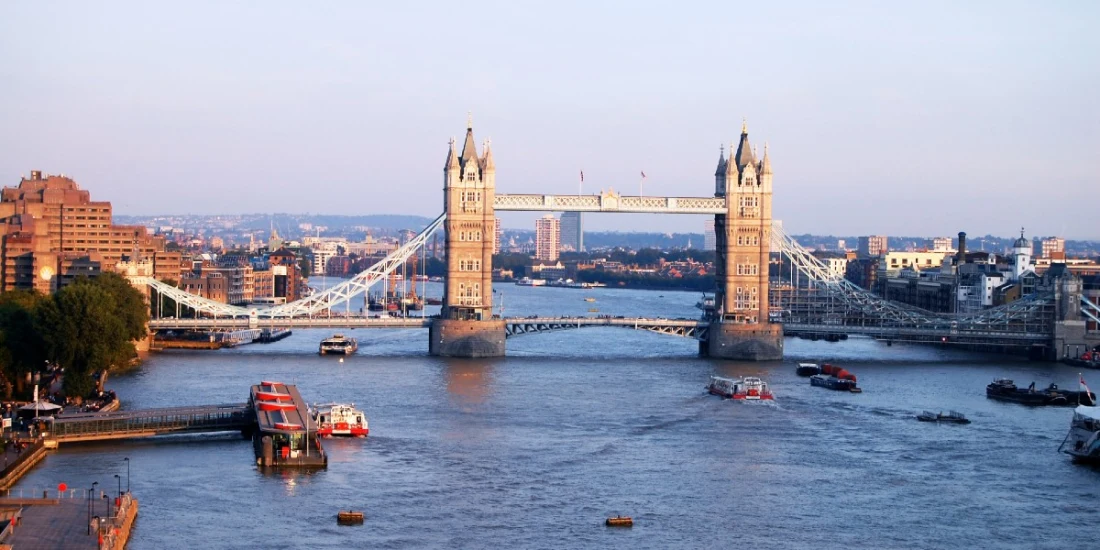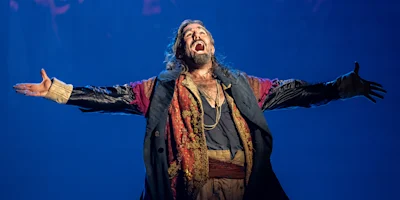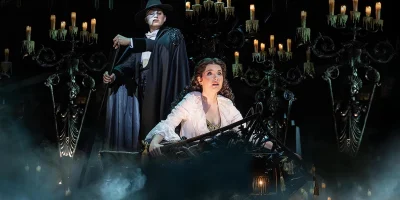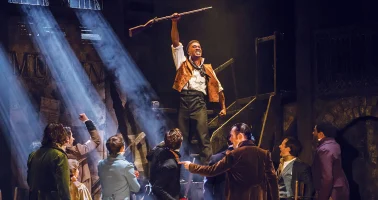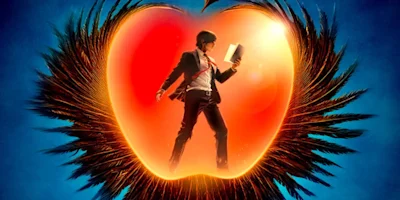
Facts and figures on London Theatre
Discover the record-breaking attempts and facts and figures of theatre in London’s Theatreland here.
Whether you’re a regular theatregoer in London, or you’ve never seen a West End show before, there’s always something you can learn about London theatre. The West End has been attracting tourists and locals alike for decades, with the latest hits and long-running, traditional productions. There’s even smaller theatres across the capital that have been home to star-studded events, often transferring to the West End, Broadway and beyond.
How many London theatres are there? Who won the first Olivier Awards? Discover the record-breaking attempts and facts and figures of theatre in London’s Theatreland here.
How many theatres are in London?
According to a count from the Society of London Theatre, there are 241 theatres across London. However, with new spaces popping up for temporary runs across the capital, we’d assume that it’s nearer to 300.
How many theatres are eligible for Olivier Awards?
Out of these 241 theatres, productions at 46 theatres are eligible for Olivier Awards. To qualify for Olivier Awards eligibility, the following theatres are owned or managed by Deposit, Full or Organisational Members: Adelphi, Aldwych, Ambassadors, Apollo, Apollo Victoria, Barbican, Cambridge, Criterion, Dominion, Duchess, Duke of York's, Fortune, Garrick, Gielgud, Gillian Lynne, Harold Pinter, Her Majesty's, London Coliseum, London Palladium, Lyceum, Lyric, National Theatre, Noël Coward, Novello, Palace, Phoenix, Piccadilly, Playhouse, Prince Edward, Prince of Wales, Regent's Park Open Air, Royal Court, Royal Opera House, Sadler's Wells, Savoy, Shaftesbury, Shakespeare's Globe, Sondheim, St Martin's, Trafalgar Theatre, The Old Vic, Theatre Royal Drury Lane, Theatre Royal Haymarket, Troubadour Wembley Park, Troubadour White City, Vaudeville, Victoria Palace and Wyndham's.
Affiliate theatres are Almeida, Arcola, Arts, Bloomsbury, Boulevard, Bush, Cadogan Hall, Donmar Warehouse, Greenwich, Hackney Empire, Hampstead, Kiln, Lyric Hammersmith, Menier Chocolate Factory, New Wimbledon Theatre, Park, Peacock, Polka, Riverside Studios, Rose Theatre Kingston, Soho, The Other Palace, Theatre Royal Stratford East, Unicorn, Young Vic.
What was the first London theatre?
The first permanent London theatre was aptly named “The Theatre”. The Theatre was built by James Burbage and opened in 1576, with audience members charged as little as one penny to attend.
When was the first West End theatre built?
On 7th May 1663, the Theatre Royal was opened on the present side of the Theatre Royal Drury Lane. As theatre became a common pastime for wealthy British citizens, more playhouses were built to accommodate the growing demand including the Adelphi Theatre in 1806.
How many people visit London and the West End each year?
Did you know that 19 million people a year visit London, including tourists. Of these, many people head to the West End in order to see a musical, play or catch the latest entertainment.
What is the longest-running show in London?
The Mousetrap is not only the longest-running West End show, but the longest running production in the world. Having played in London since 25th November 1952, Agatha Christie’s mysterious whodunit has been performed in London over 27,500 times!
Keeping up the mystery, audience members are asked to not spoil any of the secrets and withhold from telling anyone who committed the murder. So, the only way you’ll find out what happens in The Mousetrap is if you book your tickets and step inside St Martin’s Theatre to see just why this production has developed an astounding legacy.
London shows have been operating for centuries though. In fact, one of the first shows to open was the beloved puppet show Punch & Judy from as early as 9 May 1662.
When was the term “West End” first used in London?
Now, we can use the West End as a catch-all term for central London with theatres close by. According to the Borough of Westminster, the six areas of the West End are: St Martins Lane, Charing Cross Road, Covent Garden, Covent Garden North, Shaftesbury Avenue and The Strand.
Early usage of the West End dates from as far back as 1534, however the West End referred to Hampstead rather than the West End we’d consider today. It’s assumed that the West End to refer to central London is from the 18th century.
When was the first theatre award ceremony in London?
The Society of West End Theatre Awards were first awarded in 1976. The winning productions in 1976 included Dear Daddy as best play and A Chorus Line as best musical, with Anton Rodgers and Virginia McKenna taking the best actor and actress awards respectively when the categories were first introduced in 1979. The award name was changed to the Olivier Awards in 1984, named after Laurence Olivier.
What’s the most Olivier Awards a show has won?
Harry Potter and the Cursed Child is the most decorated show at the Oliviers of all time. In 2017, the play won nine awards. Matilda in 2012 and Hamilton in 2018 are currently tied for the most Olivier Awards won in the musical department, receiving seven awards.
Who has the most Olivier Awards?
Judi Dench has won eight Olivier awards, including a special award in 2004. She won her first award in 1977 and her most recent award in 2016.
What’s the longest performance given by one actor?
Adrian Hilton holds the record for the most extended theatre performance, reciting all of Shakespeare’s works in a ‘Bardathon’. This event lasted 110 hours and 46 mins, lasting from 16th July 1987 to 21st July 1987.
What’s the longest time someone has spent in a West End show?
Philip Griffiths appeared in The Phantom of the Opera at Her Majesty’s Theatre since 9th October 1990, initially cast as a swing. Later on, he was cast as Monsieur Reyer/Auctioneer and was certified by Guinness World Records on 22nd February 2016 as the actor who has spent the longest time in the same production.
What is the most expensive stage prop?
The flying car in the West End production of Chitty Chitty Bang Bang cost around £750,000 to make. The entire show cost around £6.2 million to stage, beating Cats as the most expensive production in British history.
Originally published on
